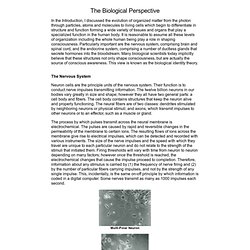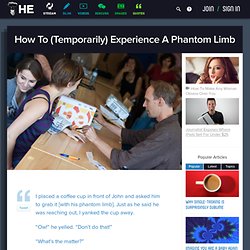

The Doctor Who Mapped His Hallucinations. Sociopath v Psychopath. Hallucinatory 'voices' shaped by local culture. By Clifton B.

Parker Steve Fyffe Tanya Luhrmann, professor of anthropology, studies how culture affects the experiences of people who experience auditory hallucinations, specifically in India, Ghana and the United States. People suffering from schizophrenia may hear "voices" – auditory hallucinations – differently depending on their cultural context, according to new Stanford research.
In the United States, the voices are harsher, and in Africa and India, more benign, said Tanya Luhrmann, a Stanford professor of anthropology and first author of the article in the British Journal of Psychiatry. Operant conditioning. Diagram of operant conditioning Operant conditioning separates itself from classical conditioning because it is highly complex, integrating positive and negative conditioning into its practices; whereas, classical conditioning focuses only on either positive or negative conditioning but not both together.

Another dubbing of operant conditioning is instrumental learning. Macdonald triad. The Macdonald triad (also known as the triad of sociopathy or the homicidal triad) is a set of three behavioral characteristics that has been suggested, if all three or any combination of two, are present together, to be predictive of or associated with, later violent tendencies, particularly with relation to serial offenses.

The triad was first proposed by psychiatrist J.M. Macdonald in "The Threat to Kill", a 1963 paper in the American Journal of Psychiatry.[1] Small-scale studies conducted by psychiatrists Daniel Hellman and Nathan Blackman, and then FBI agents John E. Douglas and Robert K. Ressler along with Dr. Ann Burgess, claimed substantial evidence for the association of these childhood patterns with later predator behavior.[2] Although it remains an influential and widely taught theory, subsequent research has generally not validated this line of thinking.[3][4] Firesetting[edit] Cruelty to animals[edit] Enuresis[edit] See also[edit] References[edit] Why is the face so important in determining attractiveness? The Roots of Consciousness: Theory, The Biological Perspective. The Biological Perspective In the Introduction, I discussed the evolution of organized matter from the photon through particles, atoms and molecules to living cells which begin to differentiate in structure and function forming a wide variety of tissues and organs that play a specialized function in the human body.

It is reasonable to assume all these levels of organization including the whole human being play a role in shaping consciousness. This Video Induces Natural Hallucinations. Who needs drugs when you have science?

If you follow the video’s instructions, when you look away you will continue to see wavy lines in your wall or on the floor. This happens due to an optical illusion that is the result of repeated psychological stimulation. When the video ends and you look away, your brain still expects to see the waves, and therefore it creates them for you. Saying the letters out loud doesn’t really play a role, it just ensures that you are focusing on the center of the screen, where you can best receive the stimulus. For best results, view the video full screen on an HD display. WARNING: Please use your discretion when viewing. A Cold War Fought by Women. Tracy Vaillancourt One of these outfits worn in Dr.

Tracy Vaillancourt's study on female aggression provoked a sort of "mean girl" form of indirect aggression. The other attracted little notice at all. Science has come a long way since then, as Dr. Hrdy notes in her introduction to a recent issue of Philosophical Transactions of the Royal Society devoted entirely to the topic of female aggression. How To (Temporarily) Experience A Phantom Limb.
I placed a coffee cup in front of John and asked him to grab it [with his phantom limb].

The Analysis of mind, by Bertrand Russell. Feelings. The Marvelous Piraha. The Egg. Author's Note: The Egg is also available in the following languages: The Egg By: Andy Weir You were on your way home when you died.

It was a car accident. Nothing particularly remarkable, but fatal nonetheless. Gestalt Theory of Visual Perception. The Perception of Color - What the Colors You Wear Say About You. We've surveyed a thousand people on how they perceive other people based on the colour of the clothes they choose.

The End of Solitude. By William Deresiewicz What does the contemporary self want?

The camera has created a culture of celebrity; the computer is creating a culture of connectivity. As the two technologies converge — broadband tipping the Web from text to image, social-networking sites spreading the mesh of interconnection ever wider — the two cultures betray a common impulse. Celebrity and connectivity are both ways of becoming known. This is what the contemporary self wants. So we live exclusively in relation to others, and what disappears from our lives is solitude. 5 Popular Beliefs That Are Holding Humanity Back.
Humans believe in a lot of stupid shit, and we do something stupid as a result of those beliefs about, oh, once every five seconds. And sure, most of you reading this are educated types who don't believe in Bigfoot or psychic readings, but there are a whole bunch of equally stupid/harmful superstitions out there that are so commonly held that we don't even think of them as such. Very few of us don't fall victim to at least a few of them. In fact, I'm something of an expert on this because I believe literally hundreds of idiotic things, and also because I wrote a ridiculous best-seller about an apocalypse brought about by people believing in apocalypses. And I say that, in order to keep humanity from imploding, we have to give up believing ... #5. Jupiterimages/Photos.com/Getty Images. Blue streetlights believed to prevent suicides, street crime.
TOKYO — Blue streetlights are believed to be useful in preventing suicides and street crime, a finding that is encouraging an increasing number of railway companies to install blue-light-emitting apparatus at stations to prevent people from committing suicide by jumping in front of trains. Although experts are split over the effectiveness of the blue lights, railway companies that already have installed the lighting say they have played a successful role in preventing suicides. Glasgow, Scotland, introduced blue streetlighting to improve the city's landscape in 2000. Internet troll personality study. Medioimages/Photodisc In the past few years, the science of Internet trollology has made some strides. Monkey, Ladder, Banana and Skepticism.
The problem of evil, as described circa 300 B.C. 10 Theories That Will Alter Your Perception of the World Around You. Solipsism. 8 Great Philosophical Questions That We'll Never Solve. How to Control Your Dreams. We need to talk about TED. In our culture, talking about the future is sometimes a polite way of saying things about the present that would otherwise be rude or risky.
Amazing Psychology Experiment. What Multitasking Does To Our Brains. List of unsolved problems in philosophy. Humanity is but a scale. Six. Western Philosophy - Mind Map. Horse Optical Illusion. 10 Psychological Experiments That Went Horribly Wrong. Psychology as we know it is a relatively young science, but since its inception it has helped us to gain a greater understanding of ourselves and our interactions with the world. Many psychological experiments have been valid and ethical, allowing researchers to make new treatments and therapies available, and giving other insights into our motivations and actions. Suicide Note.